Asbestos Interests Gave $3.3 Million to House Members Who Voted to Impede Compensation for Victims
UPDATE (July 17, 2015). EWG updated this report to clarify how asbestos interests contributed to Congressional supporters of the FACT Act.
By Bill Walker, EWG Action Fund consultant Executive summary On May 14, the House Judiciary Committee voted 19-9 for a bill that could deny justice to asbestos victims by erecting senseless and invasive bureaucratic barriers to fair compensation for exposure to a killer that claims 12,000 to 15,000 Americans a year. The 19 members of the committee who voted for the mea...
By Bill Walker, EWG Action Fund consultant
Executive summary
On May 14, the House Judiciary Committee voted 19-9 for a bill that could deny justice to asbestos victims by erecting senseless and invasive bureaucratic barriers to fair compensation for exposure to a killer that claims 12,000 to 15,000 Americans a year. The 19 members of the committee who voted for the measure had something else in common.
Over the last five years, each has received hefty campaign contributions from asbestos interests — contributions from political action committees established by asbestos companies and their trade associations, as well as executives or other high-level employees of those interests — that could save millions of dollars if the legislation, known as the FACT Act, becomes law. An investigation by EWG Action Fund found that since 2010, the 19 members have taken in almost $3.3 million in all from dozens of asbestos interests, primarily company PACs that have been tied to exposing workers, their families or consumers to asbestos, or that are known to have significant asbestos liability. (Table 1)
Members of the Judiciary Committee who voted for the FACT Act received an average of $173,267 from asbestos interests since 2010.
Near the top of the list of contributors is the empire of the Koch brothers. They own Georgia-Pacific Co., the pulp and paper giant that by 2005 – before Koch Industries bought it and made it a private company whose finances are secret – had paid $830 million in judgments or settlements of lawsuits filed by 344,000 asbestos victims (Business Chronicle 2005). Georgia-Pacific has since been hit with another 60,000 lawsuits over its asbestos-containing pipe joint compound, with estimated liability of nearly $1 billion – culpability it tried to skirt by funding bogus scientific studies that falsely concluded that the type of asbestos in the product does not cause cancer (CJ&D 2014).
Since 2010, PACs associated with Koch Industries have given the 19 Judiciary Committee members $241,500. But that’s only part of the Koch network’s efforts on behalf of legislation to delay or deny justice for asbestos victims.
Koch Industries is a major funder of the American Legislative Exchange Council, or ALEC, a right-wing bill mill that brings together state lawmakers and corporations to craft business-friendly legislation. In 2007, ALEC drafted a state-level version of the FACT Act that has been a template for bills that so far have become law in Arizona, Ohio, Oklahoma, West Virginia, Wisconsin and Texas (CJ&D 2014). Koch executives are among the leaders of the ALEC Civil Justice Task Force, which drafted the model bill, and of the Institute for Legal Reform, a lobbying arm of the U.S. Chamber of Commerce (CJ&D 2014). Passing the FACT Act is one of the Institute’s two top legislative priorities, and since 2011 the Chamber likely has spent millions of dollars lobbying for the federal bill.
Koch-affiliated campaign contributions to the 19 House Judiciary members are topped only by those of Honeywell International, the Fortune 100 chemical and manufacturing conglomerate. Honeywell, whose PAC donates more money to candidates than any other corporate PAC, has paid out more than $1.1 billion in asbestos damages since 2010 (Salant 2013, SEC 2014, SEC 2015). In that same period, Honeywell’s PAC (and its executives) gave the 19 Judiciary Committee members $245,342.
The committee members also received hundreds of thousands of dollars from interests tied to the defense industry, including contractors such as Lockheed Martin and Northrop Grumman; the oil industry, including companies such as ExxonMobil and ChevronTexaco; and the railroad industry, including companies such as Union Pacific and Burlington Northern Santa Fe – all industries with significant asbestos liabilities.
The members also got more than $100,000 in combined contributions from insurance industry interests such as those associated with Liberty Mutual, Nationwide and Allstate. Since 2011 those interests, including those representing several other insurers and insurance industry associations, have joined Koch Industries, Honeywell and the U.S. Chamber of Commerce in lobbying Congress on the FACT Act. In the sordid history of the cover-up of the dangers of asbestos, internal corporate documents have detailed the complicity of the insurance companies, including those now lobbying on the FACT Act, in hiding the truth from workers and the public (EWG 2004).
Table 1. Contributions from asbestos interests* to 19 members of the House Judiciary Committee
* “Asbestos interests” covers PACs established or funded by asbestos companies and their trade associations, as well as individual contributions to candidates from their executives or other high-level employees.
| Committee member | Contribution period1 | Contributions from companies lobbying on FACT Act, 2011-152 | Contributions from companies with known asbestos liability3 | Total contributions to member from asbestos interests |
|---|---|---|---|---|
| Smith, R-Texas | 2010> | $73,000 | $309,150 | $382,150 |
| Issa, R-Calif. | 2010> | $88,804 | $283,525 | $372,329 |
| Goodlatte, R-Va. committee chair |
2010> | $57,229 | $243,650 | $300,879 |
| Forbes, R-Va. | 2010> | $25,500 | $260,785 | $286,285 |
| Farenthold, R-Texas HR 526 co-sponsor |
2010> | $50,500 | $188,750 | $239,250 |
| Jordan, R-Ohio | 2010> | $62,000 | $149,700 | $211,700 |
| Chabot, R-Ohio | 2010> | $23,000 | $180,250 | $203,250 |
| Poe, R-Texas | 2010> | $28,250 | $171,500 | $199,750 |
| Gowdy, R-S.C. | 2010> | $47,054 | $152,250 | $199,304 |
| Franks, R-Ariz. co-sponsor |
2010> | $37,200 | $139,625 | $176,825 |
| Marino, R-Pa. co-sponsor |
2010> | $11,127 | $148,000 | $159,127 |
| DeSantis, R-Fla. | 2010> | $47,000 | $93,500 | $140,500 |
| Walters, R-Calif. | 2014> | $30,099 | $60,250 | $90,349 |
| Labrador, R-Idaho | 2010> | $31,000 | $57,050 | $82,050 |
| Collins, R-Ga. | 2012> | $8,000 | $64,750 | $72,750 |
| Bishop, R-Mich. | 2014> | $11,595 | $53,040 | $64,635 |
| Buck, R-Colo. | 2014> | $12,000 | $27,500 | $39,500 |
| Trott, R-Mich. co-sponsor |
2014> | $6,998 | $30,400 | $37,398 |
| Ratcliffe, R-Texas | 2014> | $10,098 | $18,700 | $28,798 |
| Total contributions from asbestos interests | $660,204 | $2,631,875 | $3,292,079 |
1 2010 campaign cycle through 1st quarter of 2015, or career if elected after 2010.
2 From PACs established or funded by asbestos companies and their respective trade associations, as well as executives or other high-level employees of such interests, whose disclosure records show lobbying activity for the FACT Act since its introduction in 2012. Full list of those companies and PACs in the Appendix.
3 From PACs established or funded by asbestos companies named as defendants in asbestos litigation since 2010, identified in financial disclosures, court records or news reports as having substantial asbestos liability, and from their respective trade associations and executives or other high-level employees of such interests.
The asbestos trusts
Although many Americans believe asbestos was banned decades ago, it is still legal. Use peaked in the 1970s and has since sharply declined, but because of the long latency period between exposure and illness, thousands of new claims are filed each year. EWG Action Fund’s recent analysis of official death records of the U.S. Centers for Disease Control and Prevention estimated that 12,000 to 15,000 Americans die from asbestos-related disease each year, and that number held steady from 1999 to 2013 (Lunder 2015).
In the 1990s, Congress created a new provision of the bankruptcy code that allows companies in Chapter 11 bankruptcy with asbestos liabilities to set aside money for asbestos injury claims in special trusts while staying open for business. By 2011, companies had established 60 such trusts with combined assets of $36.8 billion (GAO 2011). These companies shed their asbestos liability, remain profitable and, by setting up the trusts, often end up paying people they poisoned only pennies on the dollar of what they are owed.
The FACT Act would require the trusts to issue quarterly reports that would only serve to drain the trusts’ resources, ensuring that victims would collect even less. These reports would also publicly disclose personal information about people seeking compensation. Moreover, companies named in asbestos suits could ask the trusts for additional information related to any and all victims’ claims at any time, regardless of relevance or admissibility in court. That would result in endless unnecessary paperwork that would further burden the trusts and delay processing of claims.
These provisions would delay or deny payments to victims, some of whom could die before being compensated for their illness, lost years of life and medical bills. In the United States, median life expectancy after diagnosis of mesothelioma, an incurable cancer caused by asbestos exposure, is about one year (Moore 2008).
Asbestos interests assert that the FACT Act is needed because victims are fraudulently “double-dipping” from more than one trust. But a victim’s exposures to asbestos are often the result of several companies’ wrongdoing, and it is neither illegal nor improper to seek compensation from each company for its share of the harm.
The trust system protects companies by setting up a financial firewall between past liability and current profits, but FACT Act proponents have misleadingly characterized the system it as “push[ing] companies into asbestos bankruptcy” (WSJ 2014.) Under the guise of “transparency,” the FACT Act is an attempt to delay compensating victims for as long as possible.
Campaign contributions: the leading recipients
EWG Action Fund examined federal records of campaign contributions from the 2010-2012 election cycle through the first quarter of 2015 for members of the House Judiciary Committee who voted for the FACT Act. A version of the bill was first introduced in 2012. In its current form, it is H.R. 526, sponsored by Rep. Blake Farenthold, R-Texas.
This report compiles campaign contributions from asbestos interests that met one of these criteria:
- Tied to companies or industry associations listed in federal records as lobbying on the FACT Act or asbestos litigation reform.
- Tied to companies named in court decisions in the last 10 years as defendants in asbestos lawsuits.
- Tied to companies that have disclosed significant asbestos liability in Securities and Exchange Commission filings or whose liability was confirmed by news reports.
The findings are not definitive. Many asbestos lawsuits are settled out of court and other contributors may have asbestos liability as well. Also, lobbying forms cover an array of bills and issues, so not all lobbying reported was on H.R. 526. And many asbestos interests who gave money to the 19 Judiciary Committee members have interests in issues besides asbestos. But the records suggest how donors with shared special interests work to influence lawmakers whose decisions could save or cost their companies millions of dollars.
Besides Farenthold, the co-sponsors of H.R. 526 are Reps. Trent Franks of Arizona, Tom Marino of Pennsylvania and Dave Trott of Michigan, all members of the Judiciary Committee.
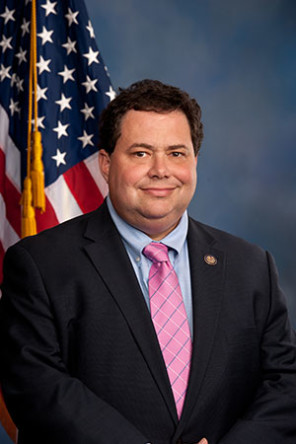
Since 2010, when he was first elected, Farenthold has received at least $50,500 from asbestos interests that have lobbied on the FACT Act, and at least $186,750 from PACs or donors associated with companies with known asbestos liability, for a total of at least $237,250.
His largest contributor among asbestos interests was the PAC of United Technologies, the maker of Carrier air conditioners and Otis elevators. United Technologies, which disclosed in 2003 that it was a defendant in 850 asbestos lawsuits (Layne 2003), gave Farenthold $27,500. Other asbestos interests who were leading contributors to Farenthold include the PACs of Koch Industries ($25,000) and Honeywell International ($24,500).
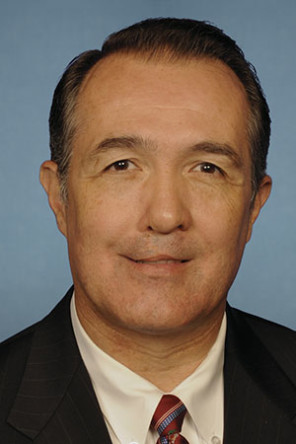
Rep. Franks was first elected in 2002. Since 2010 he has received at least $37,200 from asbestos interests that have lobbied on the FACT Act, and at least $139,625 from PACs or donors associated with companies with known asbestos liability, for a total of at least $176,825.
His largest contributor among asbestos interests was the PAC of Honeywell International, which gave him $32,200. He received $30,500 from the PACs of Raytheon Company and $27,250 from the PAC of Lockheed Martin Corp., companies that are among the largest recipients of federal defense contracts. Asbestos was widely used in the aircraft, aerospace, chemicals and metals industries, all of which are current or former components of Raytheon and Lockheed Martin’s wide-ranging enterprises.
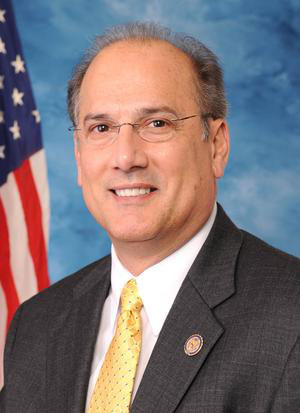
Since his election in 2010, Rep. Marino has received at least $11,127 from PACs of companies that have lobbied on the FACT Act and at least $148,000 from PACs of companies with known asbestos liability, for a total of at least $159,127. His largest contributor among asbestos interests was the PAC of PPL Corporation – formerly Pennsylvania Power and Light – which gave him $25,000. PPL has been named in several asbestos lawsuits by former workers. Lockheed Martin’s PAC gave Marino $17,000, the same amount as AT&T’s PAC. According to Lloyd’s of London underwriters, AT&T and its equipment subsidiary, Alcatel-Lucent, have been named in hundreds of suits brought by employees or customers claiming exposure to asbestos in products the company manufactured, distributed, sold or supplied (Rodriguez 2013).
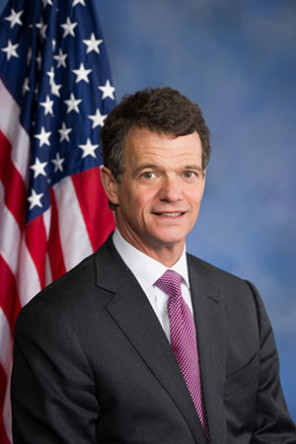
Rep. Trott, who has been in office only since 2014, received at least $6,998 from PACs or donors associated with companies that have lobbied on the FACT Act and at least $30,400 from PACs or donors associated with companies with known asbestos liability, for a total of at least $37,398. His largest contributors among asbestos interests were the PACs of Dow Chemical Co. ($12,500), General Motors ($5,700) and Ford Motor Co. ($4,100).
In 2002, Dow disclosed that it had $230 million in asbestos liability, and in 2013 it was found liable for exposing workers in one of its Louisiana plants to asbestos (Warren 2002, Business Wire 2013). GM, Ford and other automakers have been named in numerous lawsuits by workers or customers exposed to asbestos in their factories or by auto parts. Asbestos linings were once used in virtually all auto brakes, and asbestos-containing brakes are still on the market (OSHA 2006).
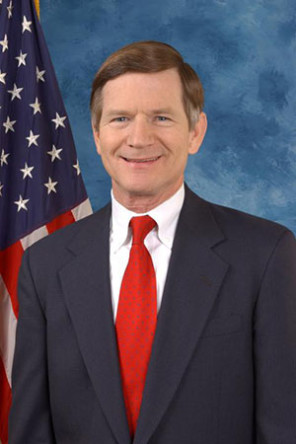
But neither Farenthold nor any of his co-sponsors were the Judiciary Committee’s biggest recipients of money from asbestos interests. That distinction goes to Rep. Lamar Smith of Texas. Smith, who has been in office since 1986, is also chair of the House Science, Space and Technology Committee, and many of his longtime major donors are PACs of aerospace companies that made heavy use of asbestos.
Since 2010 Smith has received a total of at least $73,000 from PACs or donors associated with companies that have lobbied on the FACT Act and at least $309,150 from PACs or donors companies with known asbestos liability, for a total of at least $382,150. In that period his largest contributors among asbestos interests were the PACs of AT&T ($30,150), Honeywell International ($29,500) and Valero Energy ($28,000), the Texas oil refiner that operates Valero and Diamond Shamrock gas stations and convenience stores. Asbestos was once heavily used in oil refineries to guard against fire and explosions and as an ingredient in drilling muds.
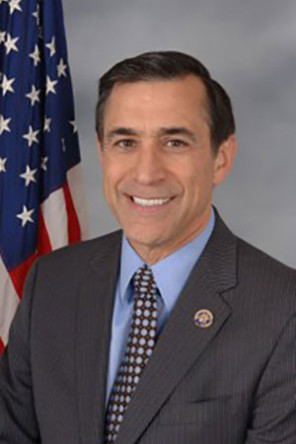
The committee’s second-largest recipient of money from asbestos interests was Rep. Darrell Issa of California. Since 2010 he has received at least $88,804 from PACs or donors associated with companies that have lobbied on the FACT Act and at least $283,525 from PACs or donors associated with companies with known asbestos liability, for a total of at least $372,329.
Among asbestos interests, Issa’s largest contributors were the PACs of AT&T ($30,525), Koch Industries ($29,000), Lockheed ($25,000) and Honeywell International ($24,554).
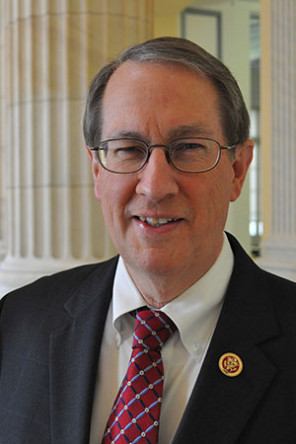
After Smith and Issa, the top recipient of money from asbestos interests on the House Judiciary Committee was the chairman, Rep. Bob Goodlatte of Virginia, first elected in 1992. Since 2010, Goodlatte has received at least $57,229 from PACs or donors associated with companies that have lobbied on the FACT Act and at least $243,650 from PACs or donors associated with companies with known asbestos liability, for a total of at least $300,879.
Among asbestos interests, Goodlatte’s largest contributors were the PACs of General Electric ($25,000) and three railroads: Norfolk Southern ($29,250); BNSF Rail, formerly Burlington Northern Santa Fe ($23,000); and CSX Corporation ($23,000), formed by the merger of the Chessie System and the Seaboard Coast Line.
Asbestos was used extensively as insulation in steam and diesel locomotives and railroads have been named as defendants in many lawsuits brought by exposed workers. General Electric, a manufacturer of locomotives and myriad other products that once contained asbestos, was also one of the companies that lobbied for passage of the state-level FACT Act in Ohio, where it became law in 2012 (OLGI 2012).
Campaign contributions: the leading contributors
As the roster of campaign contributors suggests, asbestos use was once so common that scores of corporations in a wide range of industries have some liability for the estimated 27-to-100 million Americans – living and dead – who have been exposed to the deadly substance (GAO 2011). Table 2 below lists the 11 companies with asbestos liability (plus a group of 10 insurance companies) that between 2010 to 2015 whose interests contributed more than $100,000 to the 19 House Judiciary Committee members who supported the FACT Act.
Table 2. Asbestos interests1 that donated more than $100,000 in 2010-2015 to 19 House Judiciary Committee members who supported the FACT Act
* “Asbestos interests” covers PACs established or funded by asbestos companies and their trade associations, as well as individual contributions to candidates from their executives or other high-level employees.
| Company | Contributions 2010-2015 |
|---|---|
| Honeywell International Inc. | $245,352 |
| Koch Industries, Inc. | $241,500 |
| AT&T Inc. | $239,250 |
| Lockheed Martin Corp. | $179,500 |
| Raytheon Company | $150,800 |
| ExxonMobil Corp. | $141,000 |
| General Electric Co. | $129,750 |
| Insurance companies (10)2 | $118,727 |
| CSX Corp. | $116,000 |
| Northrop Grumman Corp. | $115,775 |
| The Boeing Co. | $103,500 |
| Union Pacific Corp. | $100,500 |
| Total | $1,881,654 |
Source: EWG Action Fund, from federal campaign contribution disclosures
1 – Companies that lobbied on the FACT Act or were identified in court documents, Securities and Exchange Commission filings or news reports as having significant asbestos liabilities
2 – Allstate, American Insurance Association, The Hartford, Liberty Mutual, MetLife, National Association of Mutual Insurance Companies, Nationwide, Chubb, Travelers, Zurich Insurance Group
Lobbying activity
Table 3. Asbestos interests that have lobbied on the FACT Act
| Company |
|---|
| 3M Company |
| ACE INA Holdings |
| Allstate Insurance Company |
| American Insurance Association |
| American Tort Reform Association |
| Chubb Corporation |
| Hartford Financial Services Group |
| Honeywell International Inc. |
| Koch Companies Public Sector |
| Liberty Mutual Group |
| National Association of Mutual Insurance Companies |
| Nationwide Mutual Insurance Company |
| National Association of Manufacturers |
| Northeastern Retail Lumber Association |
| Occidental Petroleum Corporation |
| Smiths Group Services Corporation |
| The Travelers Companies |
| US Chamber of Commerce/ Institute for Legal Reform |
| Zurich Insurance Group |
Source: EWG Action Fund, from federal campaign contribution disclosures
It is impossible to determine from federal disclosure forms how much asbestos interests have spent lobbying on the FACT Act, but it clearly runs into the millions of dollars.
The forms disclose, for each quarter of each year, how much a company spends on lobbying, but do not break down the expenditures by individual bill or issue. A company must disclose what it paid its lobbyists, but the forms group together lobbying activity on a variety of bills and issues.
The U.S. Chamber of Commerce, for example, reported that it or its Institute for Legal Reform spent more $187 million from the first quarter of 2011 through the first quarter of 2015 to lobby on bills that included the FACT Act or other “asbestos reform legislation.” But those disclosure forms encompass lobbying activity on dozens of bills and issues. A very rough guess, however, suggests that if even 1 percent of the activity was on the FACT Act, the Chamber has spent almost $2 million lobbying on the legislation. Applying that assumption to the lobbying expenditures for the other companies and organizations listed above, a conservative estimate would be that another $1 million has been spent on FACT Act lobbying since 2011.
References
Business Chronicle 2005. G-P’s asbestos claims decline. Atlanta Business Chronicle, March 1, 2005. www.bizjournals.com/atlanta/stories/2005/02/28/daily21.html
CJ&D 2014. Fact Sheet: Koch and Asbestos Litigation. Center for Justice & Democracy at New York Law School, May 14, 2014. www.bizjournals.com/atlanta/stories/2005/02/28/daily21.html
EWG 2004. Asbestos: Think Again. Industry Hid Dangers for Decades. Environmental Working Group, March 4, 2004. www.ewg.org/research/asbestos-think-again/industry-hid-dangers-decades
GAO 2011. Asbestos Injury Compensation: The Role and Administration of Asbestos Trusts. U.S. Government Accountability Office, Sept. 23, 2011. www.gao.gov/products/GAO-11-819
Layne 2003. United Technologies Is Asbestos Defendant. Rachel Layne, Bloomberg News in Sun-Sentinel, Feb. 13, 2003. www.articles.sun-sentinel.com/2003-02-13/business/0302121051_1_asbestos-tort-reform-technologies
Lunder 2015, Asbestos kills 12,000-15,000 people per year in the U.S. Sonya Lunder, EWG Action Fund, May 13, 2015. www.asbestosnation.org/facts/asbestos-kills-12000-15000-people-per-year-in-the-u-s/
Moore et al 2008. Malignant mesothelioma. Alastair J. Moore, Robert J. Parker and John Wiggins, Orphanet Journal of Rare Diseases, Dec. 19, 2009. www.ncbi.nlm.nih.gov/pmc/articles/PMC2652430/
OLGI 2012. HB 380 (2012). Ohio Office of the Legislative Inspector General, Joint Legislative Ethics Committee, Legislative Bill Search. http://www.jlec-olig.state.oh.us/?page_id=4.
OSHA 2006. Asbestos – Automotive Brake and Clutch Repair Work. Safety and Health Information Bulletin, U.S. Occupational Safety and Health Administration, July 26, 2006. www.osha.gov/dts/shib/shib072606.html
Rodriguez 2013. Lloyd’s Looks To Dodge AT&T, Alcatel-Lucent Asbestos Suits. Juan Carlo Rodriguez, Law 360, Sept. 9, 2013. www.law360.com/articles/470864/lloyd-s-looks-to-dodge-at-t-alcatel-lucent-asbestos-suits
Salant 2013. Honeywell Pushes Asbestos Bill Opposed by Trial Lawyers. Jonathan D. Salant, Bloomberg Business, Nov. 13, 2013. www.bloomberg.com/news/articles/2013-11-13/honeywell-pushes-asbestos-bill-opposed-by-trial-lawyers
SEC 2014. Form 10-K: Honeywell International Inc. U.S. Securities and Exchange Commission, Feb. 14, 2014.
SEC 2015. Form 10-K: Honeywell International Inc. U.S. Securities and Exchange Commission, Feb. 2, 2015.
WSJ 2014. Busting the Asbestos Racket. The Wall Street Journal, Feb. 7, 2014. www.wsj.com/articles/SB10001424052702304549504579320583050652514






